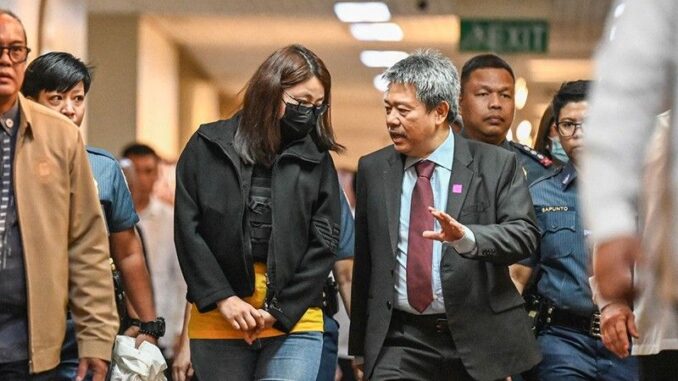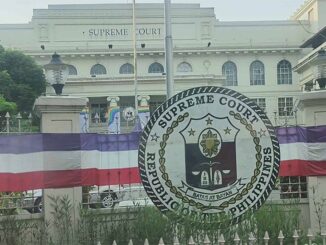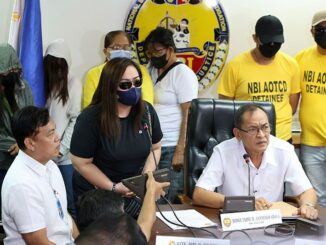
MANILA, Philippines — The lawyers of dismissed Bamban, Tarlac mayor Alice Guo could face complaints for their role in submitting an alleged fake counter-affidavit in her trafficking case.
This was revealed by Justice Undersecretary Nicholas Ty in an ambush interview on Tuesday, September 17, when he was asked about the validity of the dismissed mayor’s documents, an issue also raised during Senate investigations.
“This is really about the counter-affidavit, not just the notarization. These lawyers, the counter-affidavit came from them. They were the ones who attached it to the motion to admit, and they were the ones who made it part of the record at the DOJ,” Ty said in Filipino.
“They even benefited from it, especially since this counter-affidavit delayed the case. For us, there’s no doubt—the counter-affidavit is fake, and such actions by lawyers should not be emulated. This could set a bad example for other lawyers, making them disregard our legal proceedings here,” he added.
The Justice undersecretary said that they are investigating Elmer Galicia, the lawyer who notarized Guo’s affidavit despite the dismissed mayor not personally appearing before him.
According to jurisprudence, “a notary public should not notarize a document unless the persons who signed the same are the very persons who executed it and personally appeared before him to attest to the contents and truth of what is stated therein.”
The Justice department is still building its case, Ty informed Philstar.com.
He added that potential cases could include criminal charges, which may be addressed by prosecutors, or administrative cases, which could be filed with the Integrated Bar of the Philippines or the Supreme Court.
Philstar.com reached out to one of Guo’s lawyers, Stephen David, for comment but has yet to receive a response.
Supreme Court ruling on notarial violations
The Supreme Court, in its decision promulgated in November last year, said that lawyers who violate the Rules of Notarial Practice breach Canon II of the Code of Professional Responsibility and Accountability, which emphasizes the propriety of members of the Philippine Bar.
In a related case, a lawyer notarized a transfer certificate of title despite the owner being out of the country.
The high court imposed a one-year suspension from the practice of law on the lawyer and also prohibited him from being commissioned as a notary public for two years.
The high court stressed that a notary public should never notarize a document unless the person who signed it is the same person who appeared before them to affirm the document’s contents.
The high court stressed that a notary public should never notarize a document unless the individual who signed it is the same person who appeared before them to affirm the contents of the document.
“Notaries public are enjoined to observe with utmost care the basic requirements in the performance of their duties; otherwise, the confidence of the public in the integrity of this form of conveyance would be undermined,” the Supreme Court’s decision read.





Be the first to comment